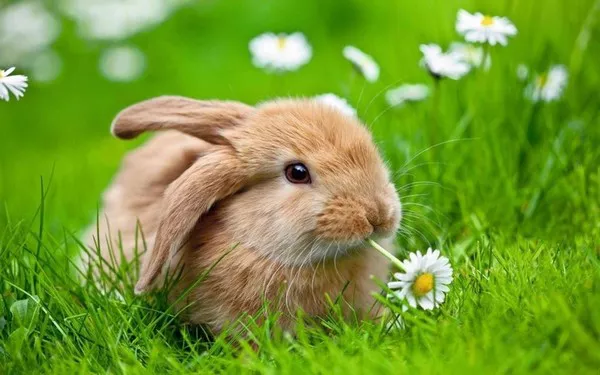Selecting the right litter for your rabbit is crucial for its health and well-being. Many rabbit owners seek cost-effective and eco-friendly alternatives, leading them to consider unconventional options, such as horse pellets. In this article, we will delve into the suitability of using horse pellets as rabbit litter, exploring the pros and cons and providing valuable insights for responsible pet care.
Understanding Horse Pellets:
Horse pellets, commonly used as bedding material for horses, are compressed wood or straw pellets. They are designed to absorb moisture effectively and control odors in the equine environment. Rabbit owners may be tempted to use horse pellets as an alternative to traditional rabbit litter due to their affordability and absorbent properties.
Factors to Consider Before Using Horse Pellets for Rabbits
Composition and Ingredients:
Horse pellets typically consist of compressed wood or straw. It is crucial to examine the composition and ensure that the pellets do not contain any harmful additives, chemicals, or substances that may be detrimental to rabbits. Some additives used in horse bedding may not be suitable for smaller animals like rabbits.
Absorbency:
While horse pellets are known for their absorbent qualities, it is essential to evaluate whether they can effectively absorb rabbit urine and control odors in a smaller enclosure. Rabbits are generally more sensitive to strong odors, and the litter should provide optimal absorbency to maintain a clean and healthy living environment.
Dust Level:
Dust can pose a significant health risk to rabbits, causing respiratory issues. Horse pellets may produce dust when broken down, and it is essential to choose pellets with minimal dust content. Regularly cleaning the litter box and replacing the litter can help mitigate dust-related concerns.
Pellet Size:
Consider the size of the pellets in relation to your rabbit’s size. Larger pellets may not be comfortable for smaller rabbits to navigate. Additionally, the pellets should be soft enough to prevent any injuries to the rabbit’s delicate feet.
Advantages of Using Horse Pellets as Rabbit Litter
Cost-Effectiveness:
Horse pellets are often more affordable than specialized rabbit litters. For budget-conscious rabbit owners, this can be an attractive option without compromising on quality if chosen wisely.
Absorbency and Odor Control:
The absorbent nature of horse pellets can be beneficial in controlling moisture and odors. When used correctly, these pellets can create a comfortable and odor-free environment for rabbits.
Availability:
Horse pellets are widely available in equestrian stores and agricultural supply centers. The accessibility of this type of litter makes it convenient for rabbit owners who may not have access to a variety of specialized rabbit litters.
Environmentally Friendly:
Some horse pellets are made from sustainable and biodegradable materials, aligning with the eco-friendly preferences of many pet owners. Choosing environmentally friendly options can contribute to a greener and more sustainable approach to pet care.
Potential Challenges and Concerns
Additives and Chemicals:
Some horse pellets may contain additives or chemicals that are safe for horses but may pose risks to rabbits. Carefully inspect the product’s ingredients list and opt for pellets that are free from harmful substances.
Dust and Respiratory Issues:
The dust generated by horse pellets can be a concern for rabbits, leading to respiratory problems. Regularly cleaning the litter box and choosing low-dust options can help minimize this risk.
Pellet Size and Comfort:
Rabbit feet are sensitive, and larger pellets may be uncomfortable for them to walk on. Choosing pellets of an appropriate size and texture is crucial to ensure the well-being and comfort of the rabbit.
Behavioral Considerations:
Rabbits have specific behavioral needs, and their litter preferences may vary. Introducing a new type of litter should be done gradually, allowing the rabbit to adapt to the change. Some rabbits may be more accepting of horse pellets than others.
Best Practices for Using Horse Pellets as Rabbit Litter
Thoroughly Read Product Labels:
Before purchasing horse pellets, carefully read the product labels to ensure they do not contain any harmful additives or chemicals. Choose pellets that are explicitly labeled as safe for small animals.
See Also:How Do You Feed Rabbits Organically?
Check for Dust Content:
Assess the dust content of the horse pellets by inspecting the packaging or asking the retailer. Opt for low-dust options to minimize the risk of respiratory issues in rabbits.
Monitor Rabbit Comfort:
Pay attention to your rabbit’s behavior and comfort level with the new litter. If your rabbit seems uncomfortable or refuses to use the litter box, consider transitioning back to the previous litter or trying a different alternative.
Regular Cleaning Routine:
Establish a consistent cleaning routine to remove soiled litter and maintain a clean living environment for your rabbit. Regular cleaning is essential for preventing odors and promoting a hygienic space.
Introduce Gradually:
If transitioning from a different type of litter, introduce horse pellets gradually. Mix the new pellets with the existing litter to allow your rabbit to adjust to the change over time.
Conclusion:
In conclusion, using horse pellets as rabbit litter can be a viable option when chosen with care and consideration. While they offer cost-effective and absorbent qualities, potential drawbacks such as additives, dust, and comfort issues must be taken into account. Responsible pet ownership involves understanding your rabbit’s specific needs and preferences, and making informed choices to ensure their well-being.
Before making the switch to horse pellets, consult with your veterinarian to ensure that the chosen product is safe for your rabbit and aligns with their health requirements. By being attentive to your rabbit’s behavior, monitoring the litter box environment, and following best practices, you can create a comfortable and safe living space for your furry friend while exploring environmentally friendly and budget-conscious options for rabbit litter.
Related Topics:
Best Sources of Protein for Rabbits
What Should Be the First Ingredient in Rabbit Food?
Can Rabbits Eat Organic?



























